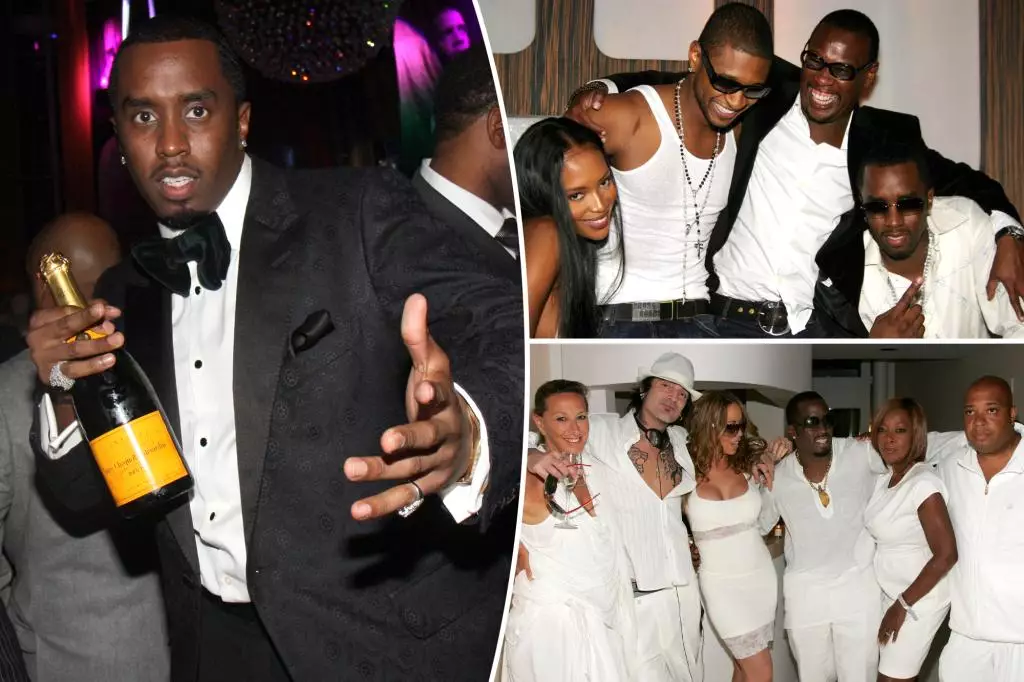The world of celebrities has always been shrouded in mystery and fascination, particularly when it comes to the extravagant parties they host. Recent revelations about Sean “Diddy” Combs’ notorious gatherings offer an unsettling glimpse into a culture of excess that can spiral out of control. According to various anonymous sources featured in reports from Us Weekly, these parties weren’t just exclusive social events; they were arenas where boundaries of decency and legality blurred dramatically.
A well-known insider described the wild atmosphere as a stark contrast between the early and late hours of the night. While the festivities might have appeared glamorous and exciting before the clock struck two, it seems the real chaos began as the evening wore on. The implication that guests were keenly aware of a “signal” to leave indicates a premeditated understanding of the unfolding volatility. As the party reached its crescendo, an alarming transformation awaited those who stayed past the witching hour: attendees reportedly began to disrobe, a telltale sign for many to make their escape, signaling that the situation had devolved beyond mere revelry into something far more unsettling.
Once guests settled into the later hours of the party, drugs became part of the equation, leading to behaviors that many would find shocking or unacceptable. With reports of sexual activities and the presence of sex workers mentioned, it becomes all the more evident that these gatherings created an environment ripe for exploitation. Attendees were allegedly enticed by the promise of unrestrained freedom—anything went, according to those with firsthand accounts.
Moreover, the specifics surrounding Diddy’s involvement in these parties have recently come under extraordinary scrutiny following his arrest in New York. The legal charges against him—including sex trafficking and racketeering—paint a dark picture of what these parties may have entailed. The unmasking of this side of celebrity life calls into question the very nature of fame and fortune, shedding light on darker undercurrents that often get overshadowed by the glitz and glamour usually associated with such figures.
The attorney representing several accusers, Tony Buzbee, has suggested that this isn’t merely about Diddy, but rather an elaborate web of enablers who facilitated and allowed such behavior to persist unchallenged. “Many powerful people will be pulled into the fray,” he stated, hinting at a culture of silence colluding to protect individuals who perpetuate such misconduct. This offers an unsettling insight into the dynamics of celebrity culture; it begs the question of how many are complicit in turning a blind eye to issues of consent and exploitation in high-profile environments.
Furthermore, celebrity reactions to Diddy’s parties, such as those from Khloé Kardashian and Ashton Kutcher, provide a chilling echo of the overall environment present. Their anecdotes, while delivered in the casual banter typical of celebrity interviews, underscore a shared awareness that many had about the disturbing nature of these events yet revealed the hesitancy to speak out openly until now, suggesting an inherent fear of derailing their own careers.
As new lawsuits pile up against Combs, the looming question remains: what will unfold in the court of law? His legal team maintains his innocence, arguing that the truth will come to light based on verifiable evidence over speculative narratives. However, public perception is easily swayed, and these sensational claims could irrevocably alter Diddy’s image and career trajectory.
In a world where celebrity culture is constantly evolving, this instance serves as a catalyst for broader discussions about accountability in the lavish lifestyles of the rich and famous. While parties may appear enticing and fun on the surface, the actions that transpire behind closed doors reveal a shocking reality that necessitates a critical approach to celebrity adulation. As the legal proceedings progress, the outcome may not only determine the fate of one individual, but may also expose a systemic issue, urging for greater reform and awareness regarding how society approaches fame and the individuals that wield it.

